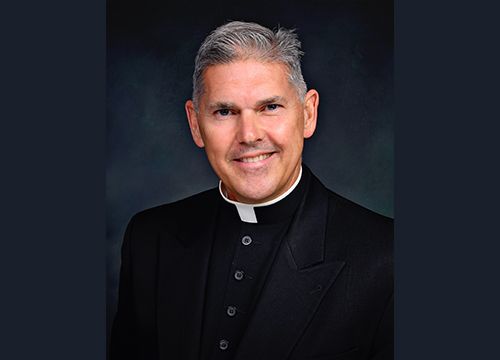Twenty-fourth Sunday in Ordinary Time, Sir 27:30-28:7, Ps 103:1-2, 3-4, 9-10, 11-12, Rom 14:7-9, Mt 18:21-35
Chapter 18 of Matthew’s Gospel is a series of discourses on how we are to conduct ourselves as members of the Church as we await the definite coming of Christ. They have been called the ecclesiastical discourses.
The chapter is divided into meditations on 1) who is the greatest in the Kingdom, 2) avoiding causing scandal, 3) the Parable of the Lost Sheep, 4) how to treat a brother who has sinned, and 5) the parable of the Unforgiving Servant – our Gospel for today.
It is a good thing to remember and bring to prayer that Jesus knew that being a member of the Church did not mean that the Church would immediately be a community of saints. Rather we need to continually pray how we are living out Jesus’ instruction to us that moves us along the way.
One of the great ways of praying the Scripture is to imagine yourself to be in the Scripture you are reading. You can imagine yourself to be in the scene interacting with the characters of the story, or you can imagine yourself being one of the characters. In doing so, you can allow the Scripture to affect you in a way that it might never do by simply reading it.
The parable of the two servants is one that I often invite others to enter through the gate of their imagination. Image yourself so drowning in debt that there is no conceivable way out. You are trapped, overwhelmed, with no options in sight.
Now, image if your creditor simply erased that debt. That incredible weight simply lifted off your shoulders.
This parable involves such a debt. The original Greek of “a huge amount” is literally translated a myriad of talents. A myriad was a word used to designate 10,000, the largest number used by the Greeks.
A talent was the largest denomination of money and was equal to 6,000 denarii. A single denarius was a day’s wage. It would have taken the man 164,383 years and six months for the man to pay back this debt. It was truly impossible to repay.
The amount owed by the fellow servant also has an exact amount, 600 days’ wages. A sizeable amount, but an amount most of us think is not unreasonable when we take out a home mortgage.
I usually ask people to play with this parable in their imagination when they are struggling with forgiving someone in their lives or are torn up by anger at another — sometimes someone they don’t even know personally, like a politician or someone they have seen on the news.
Why this parable? Because every sin we commit against an all loving God is an infinite offense. It is an offense against which no action of ours could ever cancel or satisfy. Yet this is precisely the debt that is utterly lifted off us by the free gift of our redemption in Jesus Christ. This is the life transforming gift that should leave a mark upon us.
By contrast, every offense against us by another can only appear pale in comparison. Jesus means for us to be transformed by forgiveness into his own image of the forgiving king.
Look at the Our Father: “Forgive us our sins as we forgive those who sin against us.” Look at the Beatitudes: “Blessed are the merciful, for they will be shown mercy.”
The gift of God’s forgiveness is free, but it is not without cost. The cost is that we must become the agents of God’s forgiveness in the world.
This is not something optional. It is not something to say, “Wouldn’t it be nice if someday I could live like this?” It is the consequence of being given true freedom in Jesus Christ.
To live in the world as a member of the Church of Jesus Christ is to allow ourselves to be transformed for the sake of the world that radically needs the release of the burden which each of us and all of us carry.
Msgr. Timothy Keeney is pastor of Incarnation, Charlottesville.

